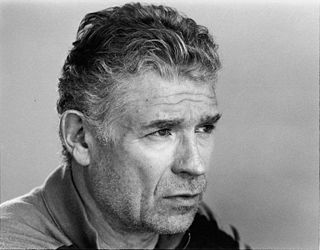A Quote by Gilbert K. Chesterton
The determining bulk of Scotch people had heard of golf ever since they had heard of God and often considered the two as of equal importance.
Related Quotes
We've always had the blame-America crowd. We've always had the hate-America crowd. But we've now had at least two generations of education where this has been indoctrinated into the young skulls full of mush of young people. They've heard how horrible America was back in the days of slavery. They've heard how horrible America treated women. They've heard how horrible every minority group was treated. They've heard how mean-spirited the founders were. They've heard all kinds of literal lies.
I had seen this comic called 'Invincible' created by two people I had never heard of before, Robert Kirkman and Cory Walker, and I was a huge fan. 'Invincible' probably had five or six issues under the belt, and the book was so impressive to me, I was surprised that I had never heard of them before. It's like they came out wholly formed.
"Hit it with the back of your left hand" was the first swing thought I ever heard, brusquely bu not unlovingly put to me by the aunt-in-law who had moments before placed a golf club in my virgin grip. I was twenty-five, and had spent my youth in a cloisterd precinct of teh middle class where golf was a rumoured something, like champagne breakfasts and divorce, that the rich did.
How often the priest had heard the same confession--Man was so limited: he hadn't even the ingenuity to invent a new vice: the animals knew as much. It was for this world that Christ had died: the more evil you saw and heard about you, the greater the glory lay around the death; it was too easy to die for what was good or beautiful, for home or children or civilization--it needed a God to die for the half-hearted and the corrupt.
If the statistics are right, the Jews constitute but one percent of the human race. It suggests a nebulous dim puff of star dust lost in the blaze of the Milky Way. Properly the Jew ought hardly to be heard of, but he is heard of, has always been heard of. He is as prominent on the planet as any other people, and his commercial importance is extravagantly out of proportion to the smallness of his bulk. His contributions to the world's list of great names in literature, science, art, music, finance, medicine, and abstruse learning are also away out of proportion to the weakness of his numbers.





































